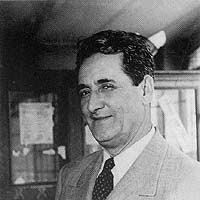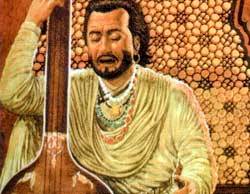We have decided to create the most comprehensive English Summary that will help students with learning and understanding.
Who I am Summary in English by Pete Townshend
Who I am by Pete Townshend About the Author
| Author Name | Pete Townshend |
| Born | 19 May 1945 (age 75 years), Chiswick, London, United Kingdom |
| Movies | Tommy, Quadrophenia, The Kids Are Alright |
| Music groups | The Who, Ringo Starr & His All-Starr Band, Blood or Whiskey, Deep End |

Who I am Summary in English
This lesson describes how each individual is unique. Each of us is different. Each of us has different features, different likings and dislikings. It is described through some boys and girls in this chapter. They are Radha, Nasir, Rohit, Serbjit, Dolma and Peter. Let us know about them one by one.
Radha: Radha is an outgoing, bold girl. She loves to go up the mango bee outside her house. She sits there comfortably. Her mother tells her not to take a chance or risk. But one day her mother also climbed with her. Both of them talked and ate raw mangoes. She felt strong and confident, sittfng there.
Nasir: Nasir has cotton fields in his village. His father buys new seeds to grow cotton plants every year. A long time ago, the grandfather used to collect the seeds from his own plants. Nasir’s father spends money to buy new seeds every year. Nasir wants to become a seed collector in order to save money.
Rohit: Rohit is a dreamer. He has some ambitions. He wishes he had money to travel to various countries. He wants to visit the mountains of New Zealand. He also wants to sail down the Amazon river, live on the sea beaches and go to the Sun temple in Orissa, the capital of China or the pyramids of Egypt. He is a lover of nature.
Serbjit: Serbjit gets angry when people disbelieve him. He is truthful. He tells his teacher truthfully why he couldn’t do his homework. He tells his parents the fact that his little brother started the fight. But they think that he is telling lies. This makes him angry.
Dolma: Dolma dreams of becoming the Prime Minister of India. She is sure that her dream wfll come true. She doesn’t mind if people laugh at her high dreams. She is intelligent and do-gooder. She wants to make things better for everyone. She wants for the best, best hospitals, roads and schools.
Peter: Peter enjoys going to see a film on the second Sunday of every month. He goes with his parents and brother. In the interval his father buys peanuts for children. They stop to eat ice cream after the show is over. He calls himself lucky that he is a part of such a happy family.
Who I am Summary in Hindi
यह पाठ बताता है कि कैसे हर व्यक्ति विचित्र है। हममें से हर कोई भिन्न है। हममें से हर किसी की विशेषताएँ, पसंदगी तथा नापसंदगी भिन्न भिन्न है। जिन लड़के, लड़कियों के माध्यम से यह दिखाया गया है वे हैं-राधा, नासिर, रोहित, सर्बजीत, डोल्मा और पीटर। आइए हम उनके बारे में एक-एक कर जानें:
राधाः राधा एक खुला जीवन जीने वाली, निडर लड़की है। उसे अपने घर के बाहर लगे आम के वृक्ष पर चढ़ना बहुत पसन्द है। वह उस पर आराम से बैठ जाती है। उसकी माँ समझाती है कि वह ऐसा खतरा न मोल लिया करे। पर एक दिन उसकी माँ भी उसके साथ वृक्ष पर चढ़ जाती है। वे दोनों खूब बातें करती तथा कच्चे आम खाती रहीं। राधा वहाँ बैठकर स्वयं को सबल तथा आत्मविश्वासपूर्ण महसूस करती है।
नासिरः नासिर के अपने गाँव में कपास के खेत हैं। उसका पिता हर वर्ष कपास उगाने के लिये नये बीज खरीदता है। बहुत दिनों पहले उसके दादा तो अपने ही पौधों से गिरे बीज एकत्रित कर लिया करते थे। नासिर के पिता हर वर्ष नये बीज खरीदने पर पैसा खर्च करते हैं। नासिर चाहता है कि वह बीज संग्रह करने वाला बन जाये ताकि पैसा बचा ले।
रोहितः रोहित सपने देखता है। वह उच्चाकांक्षी भी है। वह सोचता है काश उसके पास पैसा होता तो वह विश्व भ्रमण करता। वह न्यूजीलैण्ड के पर्वतों पर जाना चाहता है, वह अमेजन नदी पर नौकायन करना, समुद्र तट पर रहना, उड़ीसा का कोणार्क मन्दिर देखने जाना, चीन की राजधानी तथा मिस्र का पिरामिड देखना चाहता है। वह प्रकृति प्रेमी है।
सर्बजीतः सर्बजीत क्रोधित हो जाता है जब लोग उसकी बात पर विश्वास नहीं करते। वह सत्यवादी है। वह अपने शिक्षक को सच-सच बताता है कि वह होमवर्क क्यों नहीं कर पाया। वह माता-पिता को सच बताता है कि छोटे भाई ने झगड़ा शुरु किया था। पर वे सोचते हैं कि सर्बजीत झूठ बोलता है। इससे वह नाराज़ हो जाता है।
डोल्माः डोल्मा भारत की प्रधानमंत्री बनने का सपना देखती है। उसे विश्वास है कि उसका सपना सच हो जायेगा। वह बुरा नहीं मानती जब लोग उसके ऊँचे सपनों पर हँसते हैं। वह समझदार है और भलाई करने वाली भी। वह चाहती है कि हर व्यक्ति की स्थिति सुधर जाये। वह चाहती है कि सब कुछ सर्वोत्तम किस्म का हो। हस्पताल, सड़कें तथा स्कूल, सब कुछ उच्च कोटि के हों।
पीटरः पीटर माह के दूसरे रविवार के दिन कोई फिल्म देखने जाने में खुश होता है। वह अपने माता-पिता और भाई के साथ सिनेमा देखने जाता है। मध्यांतर में उसके पापा बच्चों के लिये मूंगफली ले आते हैं। शो समाप्त हो जाने पर वे सब आइसक्रीम खाते हैं। वह स्वयं को भाग्यशाली कहता है कि वह ऐसे सुखी परिवार का सदस्य है।

